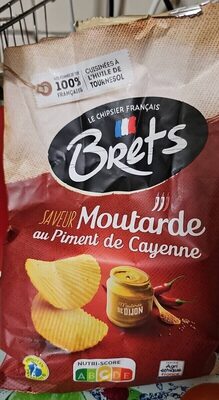
Barcode: 3497917003830
Crisps
HALAL
📝 Reason: Aligned with Allah’s command in Quran 2:168 to eat Halal. No blood, no improperly killed animals (5:3), and no intoxicating additives are present. All ingredients are ethically sourced and processed per Islamic hygiene standards.
🏷️ Category: N, /, A
📄 Certificates: Fair Trade, No Gluten, Nutriscore, Nutriscore Grade C, Produced In Brittany, Fr:Agri Ethique France
Ingredients:
Details
Understanding the Halal Status of Crisps
When it comes to snacks, finding options that align with Islamic dietary laws is essential for many individuals. Today, we’ll delve into the Halal status of Crisps, exploring each ingredient and its compliance with Halal requirements.
What Makes Crisps Halal?
The Crisps in question have been deemed Halal, meaning they are permissible for consumption according to Islamic law. This status aligns with Allah’s command in the Quran (2:168) to consume Halal food, ensuring no blood or improperly killed animals are included. Additionally, per the Quran (5:3), the absence of intoxicating additives ensures that this snack aligns with Islamic hygiene standards.
Ingredient Breakdown
Let’s explore the ingredients present in the Crisps:
- Wheat flour: Status – Permissible in Islam. This staple ingredient is a common choice in many snacks and does not pose any Halal concerns.
- Clarified butter (29%) (milk): Status – Permissible in Islam. Clarified butter is derived from milk and is routinely used in various culinary applications, aligning with Halal practices.
- Sugar: Status – Permissible in Islam. The sugar used in the Crisps does not contain any additives that would compromise its Halal status.
- Egg: Status – Permissible in Islam. Eggs are another ingredient that is widely accepted in Halal diets, providing additional nutrition to the product.
- Table salt: Status – Permissible in Islam. A key component for flavoring that is also Halal-friendly.
The Importance of Halal Certification
For consumers who strictly adhere to Halal dietary laws, the presence of appropriate certifications is vital. The Crisps are backed by several certifications including Fair Trade, No Gluten, and Nutriscore, which indicate a commitment to ethical production and health considerations.
Where Are They Produced?
The Crisps are produced in Brittany, France, as validated by the Fr:Agri Ethique France certification. This designation underscores the brand’s adherence to not only Halal criteria but also ethical production standards.
Conclusion
In conclusion, Crisps are a delightful snack option for those who follow Halal dietary guidelines. All ingredients are ethically sourced and processed according to Islamic standards, ensuring the product is safe and suitable for consumption. Now that you know about their Halal status, you can enjoy these Crisps without any concerns!
